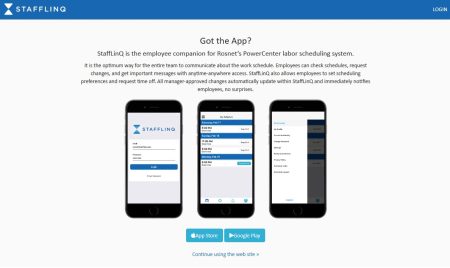Best and most effective Business Management tips will be discussed in this article. You must be able to manage business operations effectively if you are in a leadership position. Good business management entails active involvement in all facets of a firm’s operations, from upkeep of crucial company equipment to employee support. Managers and leaders should endeavour to develop their own leadership abilities and apply business management strategies that advance corporate objectives.
In this position, we offer some of the most useful advice managers may use to enhance every aspect of a business.
Top 15 Best Business Management Tips In 2022
Top 15 Best Business Management Tips are explained here.
Once you take on management responsibilities, start improving business procedures by keeping in mind following advice:
1. Automate with software tools
This is another business management tip. It’s crucial to manage time well and concentrate on high-level concerns as a manager. You and your staff can better manage your time and tasks by automating as many business processes as you can utilising business software. Every time you enter new data, you employ automated software systems to quickly accomplish pre-programmed activities in place of having to do so manually. Also check Adobe Business Catalyst Alternatives
You can increase the dependability of your business procedures by implementing automated systems. You don’t have to stress about typos or human error occurring between each step of a project because business software uses automatic processes. Typical categories of business automation software include:
- Accounting applications
- Payroll application
- Timecard applications
- Billing applications
- Software for contract management
- Customer relationship management applications
2. Make your technology accessible
Modern technology can help employees of a firm execute their tasks more easily and increase client access to the company’s offerings. People may find it more difficult to do their task when using obsolete technology in the office, especially if they are more accustomed to using other types of technology. Employees who are accustomed to utilising online scheduling tools may become frustrated while using a paper calendar to schedule meetings, for instance. Consider integrating the digital tools that your customers and team members use in the office after conducting research on their preferences. This is another business management tip.
3. Regularly Audit your budget
Making sure you have adequate money to finish all departmental or business tasks is a crucial part of managing. To achieve the best outcomes, you must actively manage your budget, even if one is in place. By routinely reevaluating your budget in light of actual spending, you can improve overall business management.
Examine corporate accounts and receipts during your budget audit to confirm expenditures and locate any potential wasteful spending. Search for cost-saving opportunities and identify which successful initiatives or projects require extra investment. You may maximise effectiveness and save money while taking into account shifting financial needs by being proactive about budget adjustments.
4. Optimize your inventory
One of the key facets of business operations and logistics is inventory management. Both consumer goods and office supplies like office equipment should be part of your inventory management plan. Knowing how much supplies to order and when to order them is essential for optimising your inventory.
Review each stage of the supply chain to ensure that your inventory management procedures are appropriate. To estimate the maximum amount of inventory you may have on hand to avoid product, equipment, or supply shortages, take into account storage and delivery costs. Set up systems that let you keep track of the stock levels of individual products and receive alerts when those levels drop below a predetermined level. This is another business management tip.
5. Be intentional about company culture
The business a company operates can be significantly impacted by its culture. It is your job as a manager to influence business culture among your employees. To find out what kind of corporate culture you want to create, talk to team members and company leaders. Establish the fundamental principles that are required to support the business’s mission, and then develop a plan for incorporating those principles into everyday job activities.
To build a resilient company culture, you may, for instance, constantly assist your staff and encourage them to support one another. Create a system of rewards for meeting important performance targets to encourage work ethic as a component of the corporate culture. Check in frequently to see how corporate culture activities are affecting performance as your culture plan is put into action.
6. Collect data for review
Understanding a business is one of the finest methods to run it. Gather as much data as you can on every area of the business. Create a variety of critical performance measures to track information such as revenue, employee satisfaction, social media activity, and other factors. Utilize focus groups, surveys, polls, and digital analytics to collect information over time and then store it in corporate databases.
Large-scale research projects can be completed more quickly and with fewer resources if information is slowly gathered over time. Even if you don’t immediately examine the data, building a database of important knowledge about the business can help you finish data analysis tasks in the future.
7. Compare outsourcing and internal operations
This is another business management tip. Make strategic decisions as a business manager regarding which business processes you carry out internally and which ones you contract out to other businesses. Be sure to weigh the advantages and disadvantages of outsourcing for each business task. Make a list of the expenses related to maintenance as well as how much it would cost to construct the infrastructure necessary to perform a task within the organisation. Then, find out how much it would command to hire a different company to accomplish that task. Consider both the immediate and long-term advantages of each choice while strategically outsourcing operations to create your business strategies. Also check What payment challenges do online businesses face
8. Develop clear training materials
Creating dependable training procedures is one of the best strategies to manage a business. All new employees have the chance to standardise their work processes when a good training programme is in place. Your training materials can also be used as a reference guide for staff members who have inquiries about the best procedures to follow in various workplace scenarios.
Create documentation and handbooks that cover everything new hires need to know, then put them in a visible position throughout the office. Create department- or position-specific training resources in addition to generic training materials to ensure that everyone who works on the same direct team is aware of their role within the organisational procedures.
9. Invest in Professional development
Possessing a growth-oriented mindset for both yourself and your team is a key component of being a competent business manager. Offering opportunities for professional growth on a regular basis can help you increase the abilities of your current staff and foster an aspirational workplace culture. Additionally, professional development makes ensuring that your workforce is up to date on technical advancements, shifting professional standards, and market trends. This is another business management tip.
A solid professional development plan strategy may include paying for team members to attend industry conferences, giving employees stipends for continuing education, inviting specialists to speak at work, or organising certification seminars.
10. Schedule free time
Although people in leadership positions frequently have busy schedules, it’s always crucial to make time for leisure. You must be able to arrange your days as a manager with some leeway in case an emergency arises.
Booking a block of free time each week might be preferable to scheduling back-to-back meetings every day. As a result, you won’t need to hustle, reschedule, or rearrange your priorities in order to take care of any pressing issues. If nothing urgent occurs, you can use the extra time to complete unfinished business, take care of maintenance issues, and communicate with your team.
11. Learn from other businesses
Even if everything at work runs smoothly, it could always be better. By thinking about workplace procedures at prior employers, you can get knowledge from different businesses. Consider what you liked best and least about your previous bosses in terms of supporting the objectives of the company.
This is another business management tip. A wonderful place to get ideas for improving your own business’s operations is from your rivals. Speak with other managers in your sector and find out about their unique management strategies. Discover what other businesses are doing to support their success, then think about how you may apply similar tactics at your own place of business. Also check VelocityShip alternatives
12. Document all best practices
Recording business habits is equally as crucial as gathering data about business performance. Make sure that every employee documents the standard operating procedures they use to carry out all of the essential duties associated with their role.
When someone is promoted or departs the business, there is continuity thanks to this. These materials can help new hires understand best practises for their positions and swiftly acclimate to their new surroundings. Existing employees can learn who to contact about particular problems or how to handle a situation on their own when someone is unavailable for assistance.
13. Use 360 feedback
By employing 360-degree performance evaluation techniques to gather feedback, you can hold everyone on your team accountable. Instead of just having managers provide feedback to their direct reports, 360-degree reviews involve all team members, supervisors, and employees providing feedback to one another. A culture of open contact and equality between roles is fostered by 360-degree feedback, and all team members are encouraged to express their suggestions for how to advance the business. As a manager, this enables you to gather as many viewpoints as you can to inform your methods of business development. This is another business management tip.
14. Model the behavior you want to see
By setting a positive example at work, you can encourage prosperous business growth. You should encourage positive conduct by setting an example for it, as it makes it simpler to accomplish business goals when everyone on a team contributes to sound management techniques. Use them in your regular job activities if you want your staff to adhere to industry best practises. In order to successfully manage business practises, you must be able to incorporate change into the workplace by demonstrating to your team members the most effective methods for reaching objectives.
15. Know when to change course
You must be able to spot when one of your business strategies isn’t functioning if you want to be a successful leader. Be sure of your ability to make decisions, but also be aware of when it’s appropriate to modify your strategy. Accept responsibility for the results of your management techniques and work constantly to enhance them, even if this means altering your original goal.











